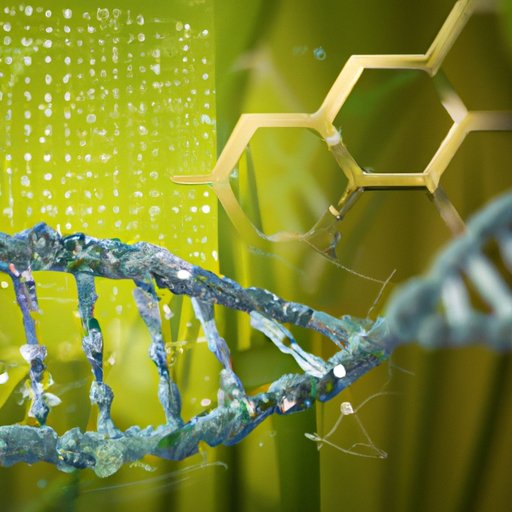Introduction
Genomics is a field of science that deals with the study of genetic information, also known as DNA. Over the past few decades, genomics has revolutionized the way we understand human health and disease, as well as the natural world around us. This article serves as an introduction to genomics, exploring what it is, how it works, and its impact on healthcare, agriculture, and society as a whole.
The Beginner’s Guide to Genomics: The Science Behind Your DNA
Genomics refers to the study of all the genes in an organism, as well as the interactions between these genes and their environments. Unlike genetics, which deals with the study of individual genes and their roles in inherited traits, genomics focuses on the entire genetic makeup of an organism. Genomics works by analyzing the DNA of an organism, either by reading its genetic sequence or by studying its gene expression and regulation.
One of the most important uses of genomics is in studying the genetic basis of human health and disease. By analyzing the genetic information of individuals, researchers can gain insights into the underlying causes of diseases such as cancer, diabetes, and heart disease. This can help them develop new treatments and diagnostic tools tailored to each person’s unique genetic makeup.
From Watson and Crick to the Present: The Evolution of Genomics
The history of genomics can be traced back to the discovery of the structure of DNA by James Watson and Francis Crick in the early 1950s. Over the next few decades, researchers continued to unravel the mysteries of genetics and DNA, leading to breakthroughs such as the sequencing of the first human genome in 2003.
Since then, advances in technology have revolutionized the field of genomics, allowing researchers to study genetic information more quickly and at lower cost than ever before. This has led to a greater understanding of the roles of genes and their interactions with the environment, as well as new insights into the genetic basis of diseases.
The Impact of Genomics on Healthcare: Revolutionizing Medicine
Genomics has the potential to revolutionize healthcare by improving disease diagnosis and treatment. By analyzing the genetic information of patients, doctors can tailor treatments to each person’s unique genetic makeup, increasing the effectiveness of treatments and reducing side effects.
Genomics has already led to a number of medical breakthroughs, such as targeted cancer therapies and genetic tests for inherited diseases. In the future, genomics is likely to play an even larger role in healthcare, helping doctors develop personalized treatments for a wide range of conditions.
What Your Genomics Test Results Actually Mean: Understanding the Science
Genomic testing is a process that involves analyzing a person’s genetic information to gain insights into their health and disease risk. This can involve sequencing the person’s entire genome, or focusing on specific genes or regions of the genome.
Interpreting genomic test results can be a complex process. However, by working with a qualified healthcare provider, patients can get a better understanding of what their results mean and how they can use this information to improve their health.
Genomics and the Future of Personalized Medicine: How It Will Change Your Health
Personalized medicine involves tailoring treatments to each individual patient, based on their unique genetic makeup and other factors. Genomics is poised to play a major role in this field, by providing doctors with detailed information about each patient’s genetic predispositions, disease risk factors, and treatment responsiveness.
Through personalized medicine, doctors will be better able to treat diseases such as cancer, diabetes, and heart disease with greater precision and effectiveness. In the future, genomics may also help to identify new disease targets and develop innovative new treatments.
Genomics in Agriculture: How Plant and Animal Breeding Is Being Transformed
Genomics is not only relevant to human health but also to agriculture. By analyzing the genetic makeup of crops, livestock, and other organisms, researchers can gain insights into their growth and development. This can help improve crop yields and livestock health, leading to more sustainable and efficient farming practices.
Genomics is also being used in agricultural research to develop new plant and animal breeding strategies. By identifying genetic variations associated with desirable traits, researchers can select for these traits more efficiently, leading to better crop and livestock varieties.
Conclusion
Genomics is a fascinating field of science that has already had a profound impact on human health, agriculture, and society as a whole. As technology continues to advance, genomics is likely to play an increasingly important role in our lives, helping us to better understand our genetic makeup and how it shapes our health and wellbeing.
Those interested in learning more about genomics and its applications are encouraged to explore the many resources available online and to speak with qualified healthcare professionals or researchers in the field.
